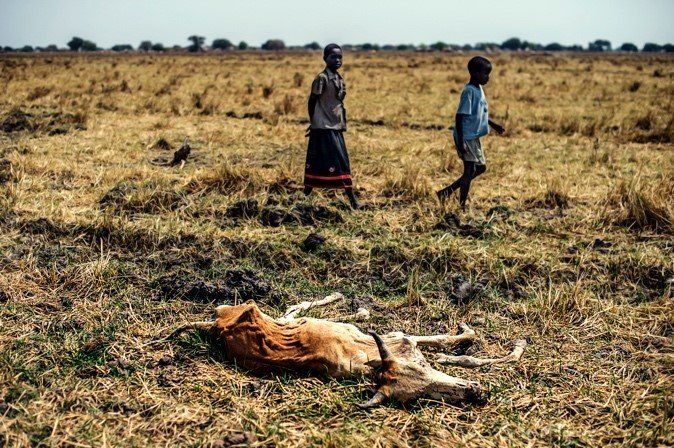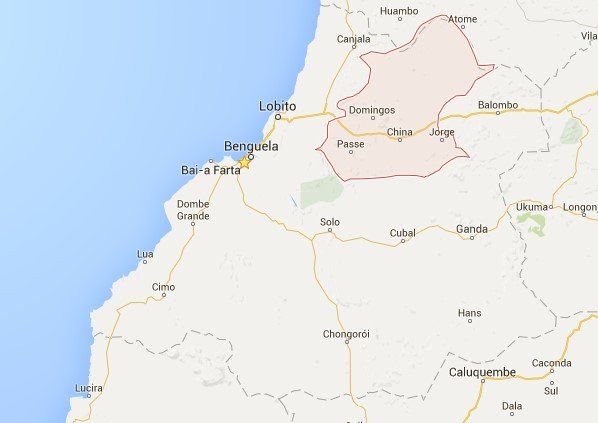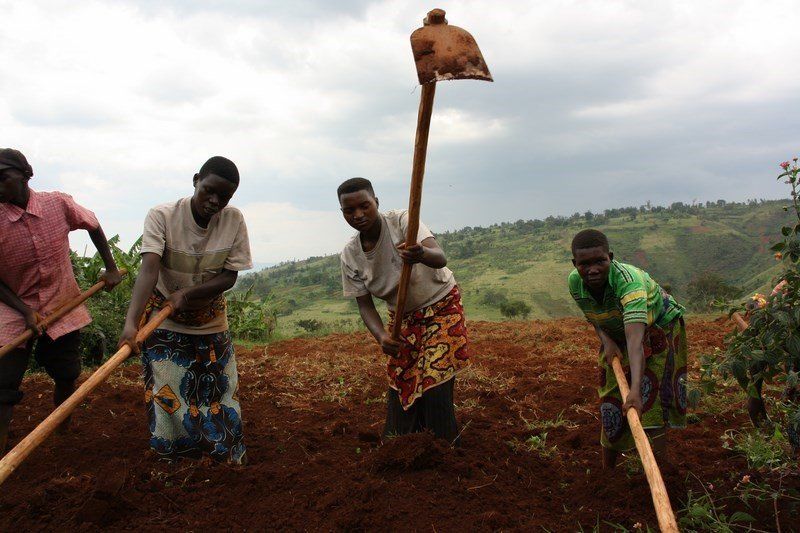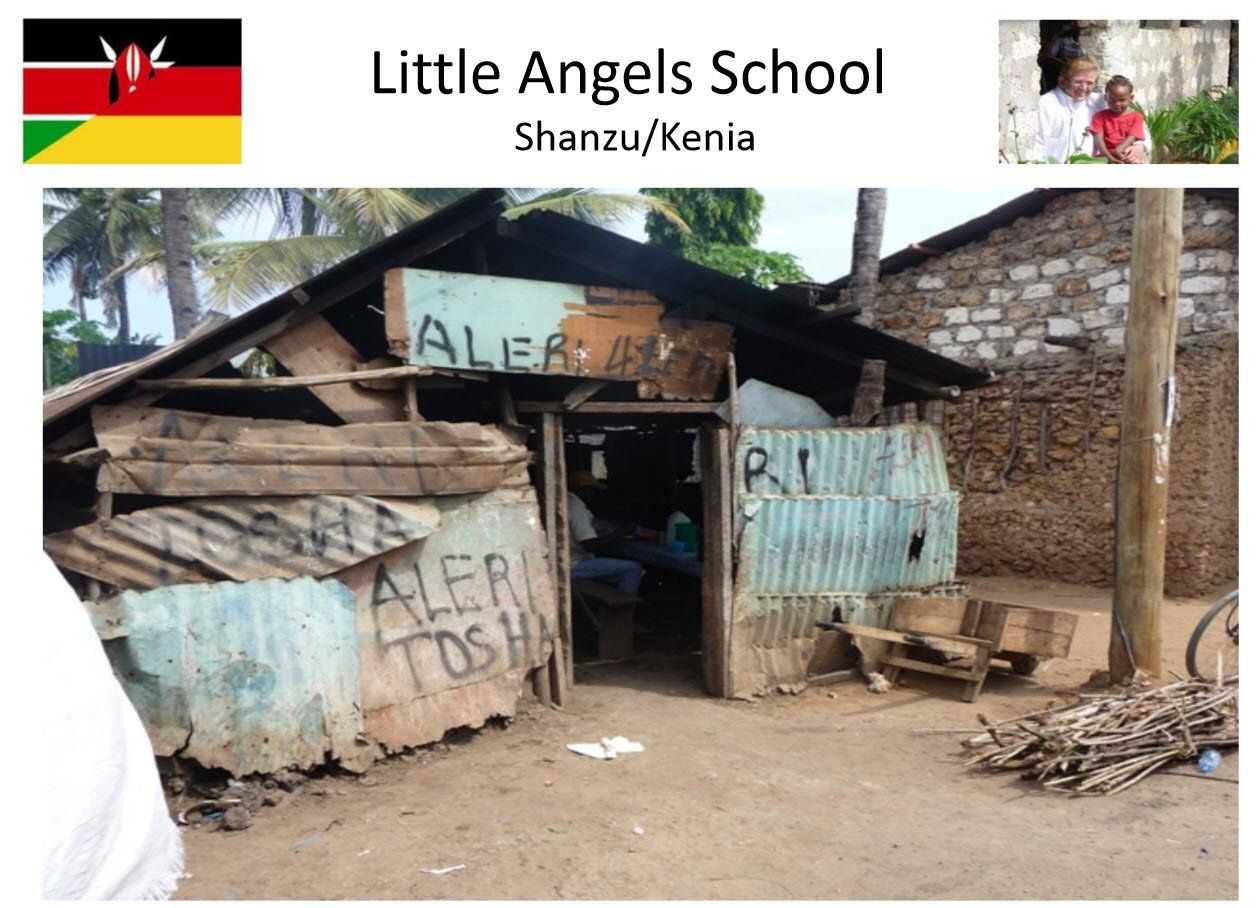ERNST PROST FOUNDATION FOR AFRICA

Mozambique has been hit by the worst drought in 35 years, caused by the El Niño phenomenon that has affected large parts of Africa. According to estimates made by the World Food Programme, this El Niño phenomenon is the worst in 50 years. Thousands of animals are dying because they can't find water, more than 300,000 farmers have suffered a complete crop failure and more than 1.5 million people are suffering extreme famine. Many are expected to die of starvation. People are leaving their villages and looking for help in larger towns or else in neighboring South Africa.

Supply of drinking water - overview The supply of drinking water in the rural areas of Angola and Mozambique is very poor. Many villagers, especially children, catch infectious diseases due to the soiled drinking water. 3.4 million people worldwide die every year as a result of contaminated drinking water. Water is also needed for arable farming. Cattle breeding is barely possible in dry areas.

1. Introduction Bocoio is an administrative district in the north of the province of Benguela in Angola. According to the 2014 census, the region has a population of 154,446, of whom 7.6% live in the province of Benguela. Bocoio is made up of five municipalities: Monte Belo, Chila, Chubal, Lumbo and Pass. The tropical climate alternates between the dry season and the rainy months of September to April. In addition to corn, potatoes and sweet potatoes, families also grow beans in their domestic gardens. However, this is usually only sufficient for them to feed themselves, so they do not have enough left over to sell. In the last five years Bocoio has been hit by a drought, causing a severe reduction in agriculture and impacting dramatically on the food situation for the population. This mainly affects children, who often suffer from malnutrition/undernourishment. Most of the people living in the villages are unemployed. Some of them work in mines. On average they own ¼ to ½ hectare of land on which they try to grow vegetables. During the dry season they collect wood so as to sell it as firewood or charcoal. There are no medical care centers in the villages and clinics are frequently only to be found in the bigger towns of the administrative districts. The evaluation and control of schools has been taken care of by JAM Angola in coordination with the local education authority and the local ministry, based on the criteria specified by the “Ernst Prost Foundation for Africa”. The schools are selected according to the following factors: 1. Accessibility via country roads 2. Situation and standard of living in the surrounding community 3. Existing infrastructure in the communities, i.e. availability of a school kitchen and storage room for corn-soybean gruel, willingness on the part of the mayor and parent-teacher association to provide support 4. Access to clean drinking water

Now that the first project of the steps for children foundation has been established in Okakarara, we have taken the next step and started a second project in Namibia – in the town of Gobabis. This is situated 200 km east of Windhoek and 100 km from the border to Botswana. It is a town with a population of approx. 19,000, most of whom live in great poverty in tin huts in the slums at the edge of the town. The unemployment rate here is at least 65%; there is no running water in the huts, and there are no toilets or electricity. HIV/AIDS and tuberculosis are extremely widespread. Many children don’t attend school or only do so for a short period of time. In the winter, when temperatures sometimes drop to -10 C°, people in the slums die if they are too weak to move. In 2010 we entered into cooperation with the existing project Light for the Children in order to support a soup kitchen and a pre-school with approx. 300 children. The project is situated in the informal settlement Epako, directly on the edge of a slum area and in fact forming part of it. We have already set up several small businesses that are generating their own income such as a carpenter’s workshop, a computer school, a guest house and a mushroom farm. At the carpenter’s workshop we produce various solar-powered stoves for cooking, for example. By setting up the small businesses and recruiting teachers and supervisors, we have been able to create many new jobs so as to reduce unemployment here, too. We provide direct and indirect support for up to 100 people since every employee provides for approximately ten other family members.

"School burundikids1and training places to provide sound training in the areas of agroforestry, cattle breeding and resource preservation for especially underprivileged young people in the rural area of Burundi”: Fittings and furnishings for a multi-purpose hall and a classroom and improvement of sanitary facilities Project costs: EUR 9,777.12 A project by burundikids e.V. in collaboration with


